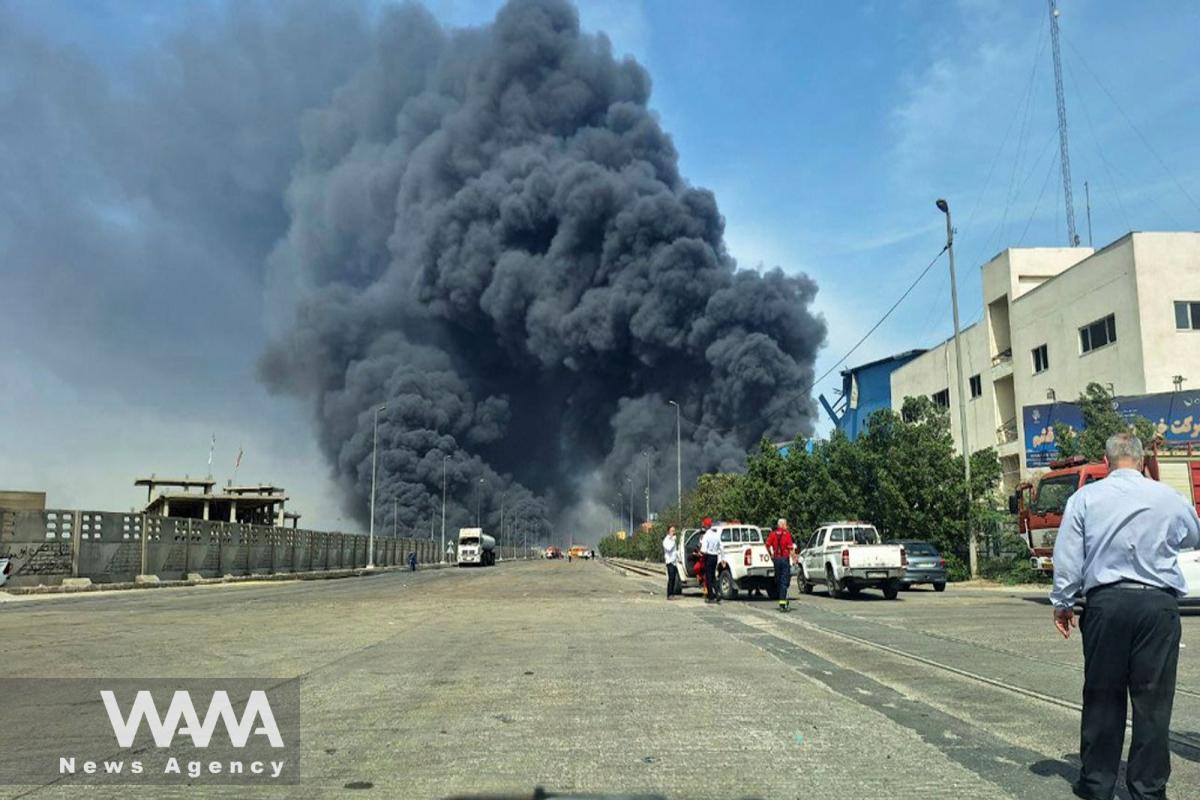The Bandar Abbas Explosion and the Sabotage Hypothesis
WANA (Apr 27) – The explosion in Bandar Abbas occurred at a critical and sensitive time — on the same day as the third round of negotiations in Muscat. For this reason, following the blast, many eyes turned toward Israel as the prime suspect, suggesting that it may have sought to disrupt and derail the negotiations through this incident.
Even after several hours have passed, no clear narrative regarding the cause of the explosion or the extent of economic damages has been released, and it remains unclear what exactly happened. It is possible that the details may not become clear anytime soon.
Thus, it remains uncertain whether this was a natural accident coinciding with the negotiations, or an act of sabotage.
If we assume the second hypothesis — that it was sabotage — the question arises: what was the goal? In this case, whatever the objective may have been, it was likely not to bring the negotiations to a complete halt. Israel is fully aware that such an operation, even if it was involved, would not succeed in ending or derailing the talks.

Black smoke billows after the explosion at Rajaei port, 26th April 2025 / WANA News Agency
Therefore, the idea that Israel acted with the aim of collapsing the Muscat negotiations seems unlikely. The reality is that neither this incident — if it was indeed sabotage — nor even broader operations such as assassinations would necessarily bring the negotiations to a halt, though repeated incidents could certainly damage the process. The only move that could decisively end or at least suspend the negotiations would be a direct and overt Israeli attack on Iran’s nuclear facilities.
Another event that could lead to the collapse of diplomacy, particularly by prompting action from Trump, would be a major incident targeting American forces in the region, resulting in significant casualties and being attributed to Iran or its allies.
However, a direct attack on nuclear facilities also seems unlikely at this time, and it is improbable that Israel would undertake such an operation without the green light from the United States — especially under the Trump administration. Netanyahu is currently exercising extreme caution in his relations with Trump, to the extent that he avoids even verbally expressing frustration or anger over the diplomatic track between Tehran and Washington.
This cautious approach sharply contrasts with Netanyahu’s behavior during the Obama and Biden administrations, when he openly challenged their policies, even traveling to the U.S. Congress to criticize them.
#Explosion at #Iran ’s Shahid Rajaee Port
Earlier today, a powerful explosion occurred at Shahid Rajaee Port in Bandar Abbas, Iran — an incident that has raised serious concerns due to the port’s critical role as one of the main arteries of Iran’s…https://t.co/G4OuEavq7p
— WANA News Agency (@WANAIran) April 26, 2025
Now, however, Netanyahu’s primary concern is staying in power, and he is highly mindful of Trump’s position, making it unlikely that he would take any action without U.S. coordination that could provoke Trump’s anger or retaliation.
Nonetheless, this does not mean the sabotage hypothesis can be entirely dismissed. Another plausible scenario is that, if sabotage indeed occurred, it may have been the work of Mossad with American coordination. Yet, as stated earlier, the goal would not have been to halt the negotiations, since such an objective could not be achieved through this incident alone. Rather, the aim could be to exert practical pressure outside the negotiations table to extract greater concessions and offer fewer compromises during the talks.
If this hypothesis proves correct, then the sabotage at Iran’s largest container port — the second-largest in the region — carries significant symbolic and economic weight, given the blow it delivers to Iran’s trade infrastructure.
Thus, if sabotage is confirmed, similar incidents might be expected in the future, posing a serious challenge to the ongoing negotiations.












